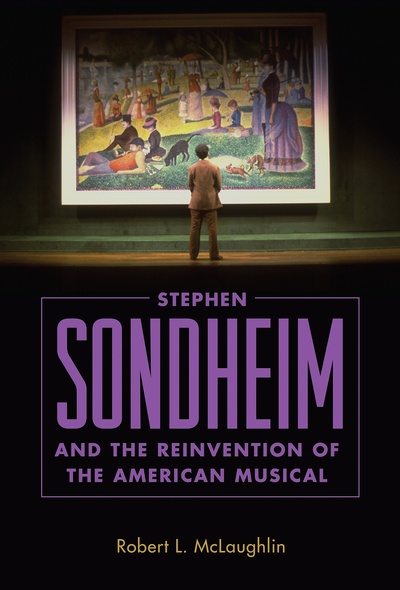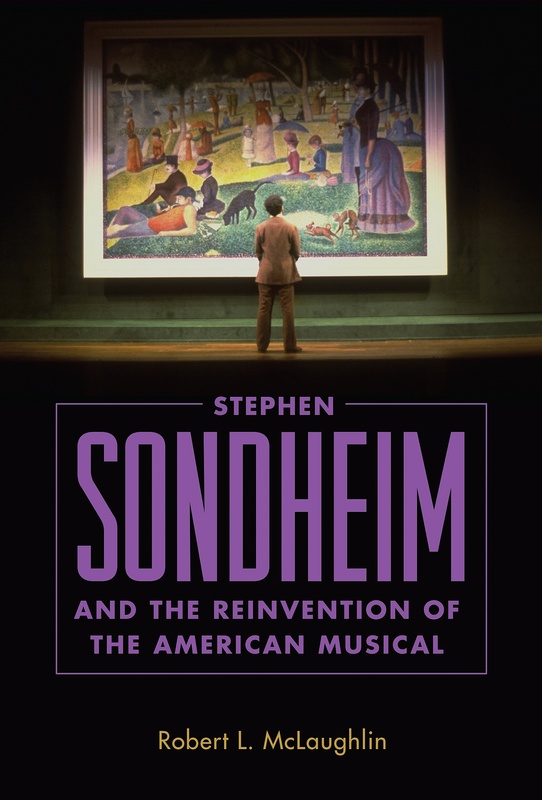
Stephen Sondheim and the Reinvention of the American Musical
From West Side Story in 1957 to Road Show in 2008, the musicals of Stephen Sondheim (1930–2021) and his collaborators have challenged the conventions of American musical theater and expanded the possibilities of what musical plays can do, how they work, and what they mean. Sondheim’s brilliant array of work, including such musicals as Company, Follies, Sweeney Todd, Sunday in the Park with George, and Into the Woods, established him as the preeminent composer/lyricist of his, if not all, time.
Stephen Sondheim and the Reinvention of the American Musical places Sondheim’s work in two contexts: the exhaustion of the musical play and the postmodernism that, by the 1960s, deeply influenced all the American arts. Sondheim’s musicals are central to the transition from the Rodgers and Hammerstein-style musical that had dominated Broadway stages for twenty years to a new postmodern musical. This new style reclaimed many of the self-aware, performative techniques of the 1930s musical comedy to develop its themes of the breakdown of narrative knowledge and the fragmentation of identity. In his most recent work, Sondheim, who was famously mentored by Oscar Hammerstein II, stretches toward a twenty-first-century musical that seeks to break out of the self-referring web of language.
Stephen Sondheim and the Reinvention of the American Musical offers close readings of all of Sondheim’s musicals and finds in them critiques of the operation of power, questioning of conventional systems of knowledge, and explorations of contemporary identity.
This is a lively and elegant account of the ways in which Sondheim and his collaborators deconstruct the realist master narratives that shaped ‘golden age' Broadway musicals in creating the first postmodern musicals. McLaughlin’s penetrating new readings of Sondheim’s musicals represent an illuminating analysis of the changing dramaturgical principles that have dominated American musical theatre from Rodgers and Hammerstein to Jason Robert Brown. Stephen Sondheim and the Reinvention of the American Musical will surely be required reading for students and scholars of modern musical theatre.
How I wish I’d had Stephen Sondheim and the Reinvention of the American Musical before I did eleven productions of Sondheim musicals. Grateful to have it now. McLaughlin asks, answers, and fires new synapses both beautifully and economically. A must-read for any Sondheim lover.
An astonishing achievement. If McLaughlin had been a neurosurgeon, he could not have gone into Stephen Sondheim’s brain any better than he does in this remarkable and readable book. McLaughlin is so precise and illuminating that we come away having even more respect for Sondheim than we had when we started the book.
Finally, an investigation of Sondheim’s work that is as rigorous and profound as the artist it celebrates. McLaughlin recognizes that Sondheim’s unique genius requires the kind of serious critical examination usually reserved for other art forms. In doing so, his deeply insightful scholarship cements Sondheim’s canonical legitimacy among the great writers of the twentieth century.
Robert L. McLaughlin is professor of English at Illinois State University. With Sally E. Parry, he is author of We’ll Always Have the Movies: American Cinema during World War II and editor of Innovations: An Anthology of Modern and Contemporary Fiction.





